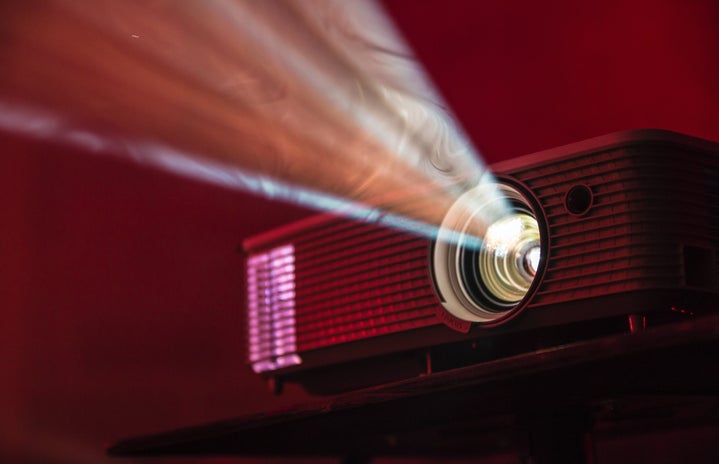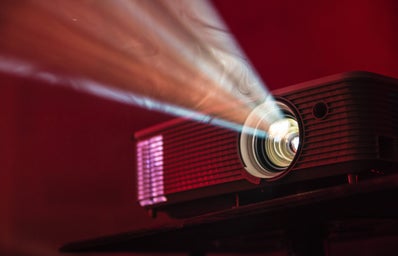This past year has been a monumental year for Asian Americans in the film industry. Bong Joon-ho’s historic win for his film Parasite was hailed in the media as a major victory for the Asian American community in the film industry. Even though 2020 was so groundbreaking, Hollywood has far more work to do to be an inclusive space for Asian Americans, in particular Asian American women. This article not only examines the stereotypes and underrepresentation of Asian women in the film industry but also highlights some Asian women in all areas of the film industry who are inspiring and redefining the mold of Asian women on the screen.
The lack of proper representation in Hollywood for Asian women is not a new phenomenon. Asian women have historically been either absent from film or pushed into harmful stereotypes such as the villain or one-dimensional, hyper-sexualized characters. Just recently, actress Kat Ahn who guest-starred on The Office spoke out about the problematic portrayal of her character in the episode “Benihana Christmas” in 2006. In the episode, the main character Michael Scott and his co-workers invite two Benihana waitresses who are both Asian women to attend their office party. Throughout the episode, there is a running joke that Scott cannot differentiate between the two women. Ahn commented that her portrayal was that “we’re one big monolith and just one big walking stereotype without any personality or any individuality, which is problematic. The whole joke was that all Asians look alike and that’s why Michael Scott couldn’t tell us apart.”Ahn is not alone in her experience in the industry as her character’s racist one-dimensional portrayal is, unfortunately, a recurring theme in Hollywood. Film Scholar Celine Parreñas Shimizu discussed the constraints Hollywood places on Asian women when she noted that “the notion of a self-sacrificing, suicidal, servile, suffering, sexually available Asian woman is a prison from which we need to be liberated.” Hollywood’s history of misrepresenting Asian women comes in part from the lack of Asian women directors in the industry. UCLA’s 2020 Hollywood Diversity Report found that 91 percent of executives at major and mid-level film studios were White and just 3.3 percent of the most popular films from 2007 to 2019 were directed by Asian directors. These statistics are clear indications that we need more Asian women directing films, we need more Asian women writing proper storylines, and we need more Asian actresses to bring these stories to light. Hollywood needs to recognize the harmful effects of the underrepresentation of Asian women in film and promote the diverse storylines, characters, and directors in the industry.
In the midst of the underrepresentation in Hollywood, Asian women are breaking down barriers and challenging the racism and sexism of the film industry in many different ways. On the directing side, Alice Wu, director of popular films The Half of It and Saving Face, is combatting the one-dimensional narrative by uplifting and highlighting stories of Asian LGBTQ+ women in her films. Wu, a lesbian woman of Chinese descent herself, channels her own life story into her work which shows the power of authenticity and diverse narratives in the film industry. Other directors to watch out for include Cathy Yan who caught the eye of Warner Brothers at the 2018 Sundance Festival for her film Dead Pigs, which was inspired by the 2013 dead pigs incident in the Huangpu River in Shanghai. Yan later went on to direct the film Birds of Prey, making her the first woman of Asian descent to direct a major superhero film. These directors are supported by many Asian actresses who advocate for multidimensional character arcs on television. Jamie Chung, a Korean American actress known for a wide variety of roles including Princess Protection Program and Once Upon a Time, commented on the liberation she felt through her role of Ji-Ah in the show Lovecraft County. In her role, Chung was allowed room to explore a multifaceted character as a South Korean nurse who was possessed by a mythological fox spirit called the kumiho during the Korean war. Chung described her role as “liberating” and noted that “if all my work made me feel this way, so valued and represented, I could just die happy.” Chung’s words reiterate the need for proper representation and diverse storylines for Asian women in the film industry so that Hollywood can break down the embedded stereotypes and racism in the industry.
Sources:
https://www.washingtonpost.com/arts-entertainment/2021/03/26/asian-women-hollywood-portrayals/
https://www.washingtonpost.com/arts-entertainment/2021/03/26/asian-women-hollywood-portrayals/
https://www.washingtonpost.com/arts-entertainment/2020/05/01/netflix-half-it-alice-wu-interview/
https://www.indiewire.com/2021/02/cathy-yan-dead-pigs-birds-of-prey-next-movie-1234616115/



